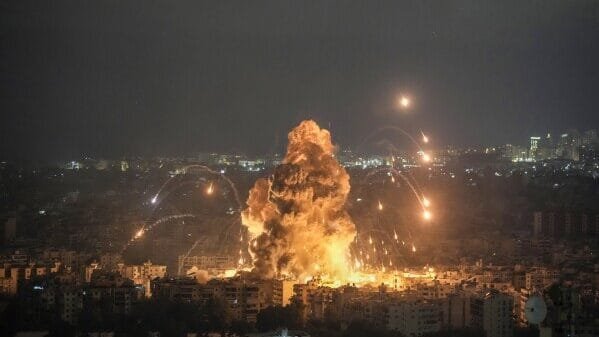Nuclear Annihilation and Cold War Fears: Revival of Tensions
Rising Concerns Over a New Cold War
Global tensions have escalated as U.S. policies towards Russia increasingly evoke comparisons to the Cold War era. Diplomatic relations between the two superpowers are strained, with both sides taking hardline stances on critical issues like Ukraine, NATO expansion, and cyber warfare. The situation has reignited fears of a new Cold War, with many questioning the possibility of diplomatic solutions.
U.S. Policy Echoes the Red Scare
Observers have drawn parallels between current U.S. foreign policy and the mid-20th century Red Scare, when anti-Soviet sentiments dominated American political discourse. Today, anti-Russian rhetoric is fueling public fears of nuclear conflict, much like the anxieties of the Cold War era. Critics warn that this stance may increase the risk of miscalculations, raising the potential for escalation.
Nuclear Annihilation: A Renewed Threat
The looming threat of nuclear annihilation has resurfaced, as both the U.S. and Russia continue to modernize their nuclear arsenals. Experts fear that ongoing military buildups, combined with aggressive rhetoric, could lead to a dangerous arms race reminiscent of the Cold War. While nuclear deterrence theory remains in play, the risk of catastrophic error is ever-present.
Geopolitical Tensions and Proxy Conflicts
Much like the Cold War, current global tensions are being amplified by proxy conflicts, particularly in regions like Eastern Europe and the Middle East. The involvement of Russia in Ukraine and the U.S. support for NATO allies are seen as modern examples of geopolitical posturing, heightening fears of a larger, potentially nuclear confrontation.
Calls for Diplomatic Engagement
Amidst growing fears, there are increasing calls for renewed diplomatic engagement between the U.S. and Russia. Many argue that de-escalation and dialogue are necessary to avoid the mistakes of the past, particularly in an era where technological advancements in warfare make the stakes even higher. However, finding common ground has proven elusive as both nations remain entrenched in their positions.
Impact on Global Security
The revival of Cold War-era tensions has broad implications for global security. Many nations are being forced to navigate the complex dynamics between the U.S. and Russia, balancing their own diplomatic interests with the growing risk of conflict. As both superpowers continue to assert their dominance, smaller nations may find themselves caught in the crossfire.
Public Anxiety and Media Influence
Public anxiety over the potential for nuclear war is being fueled by media portrayals of the U.S.-Russia relationship. Constant news coverage of military escalations, cyberattacks, and diplomatic spats has heightened fear and uncertainty. Experts warn that this climate of fear, much like during the Red Scare, could influence public opinion and government policy, potentially leading to more aggressive actions.
The Role of International Institutions
International institutions like the United Nations and NATO play a critical role in managing these tensions, though their effectiveness is often debated. Some argue that these organizations can serve as mediators to prevent conflict, while others believe that their involvement may actually exacerbate the rivalry between the U.S. and Russia, particularly when military alliances are involved.
Economic and Military Consequences
The escalating tensions between the U.S. and Russia are not only raising fears of nuclear annihilation but also causing economic and military consequences. Both countries have increased defense spending, engaging in an arms race reminiscent of Cold War times. Sanctions, military exercises, and cyberattacks have further strained relations, potentially destabilizing global markets and security.
A Call for Lessons from History
As concerns about nuclear annihilation and Cold War tensions rise, many experts emphasize the importance of learning from history. The original Cold War was marked by periods of intense rivalry but also by moments of diplomatic breakthroughs, such as arms control treaties. Analysts argue that finding pathways to dialogue, mutual respect, and restraint is crucial to avoid repeating the mistakes that once brought the world to the brink of nuclear disaster.
This new phase of global tension calls for careful diplomacy to prevent a resurgence of the Cold War’s most dangerous elements.

































